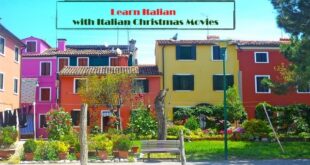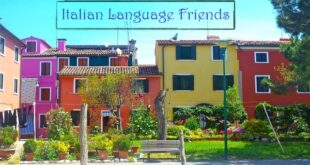Dealing with immigration matters can be tricky, especially when it comes to your visa or residence permit in Italy. A visa is a document, usually stamped in a passport, that allows a person to enter a country for a certain period of time, while a residence permit is a document that allows a person to stay in a country for an extended period of time (for work, study, family reasons or other). If you are entering the country for tourist purposes, as long as you do not exceed the 90-day period, no visa is required.
It is crucial to know how to calculate the period of time involved if you are going back and forth and do not want to overstay the 90-day period. In this case, you must use the “rolling year” calculation. Under current EU rules, non-EU nationals are limited to 90 days spent in ANY EU nation (known as the Schengen Area) during a 180-day period.
For example, if a traveler entered Italy (in the Schengen Area) from the UK (not in the Schengen Area) and spent 10 days in Italy, then took a train to Poland (in the Schengen Area) for a stay of 7 days, and then flew back to the UK for 10 days, he is considered to have stayed 17 total days in the Schengen Area.
What is most confusing is the 180-day portion of the rule, and many visitors get it wrong, resulting in overstaying. The 180 days are calculated as a rolling period that begins the moment you set foot in any country in the Schengen Area. If you send more than 90 total days in any country in the Schengen Area, you’ve broken the 90/180-day rule.
For example, if you enter Italy on March 21, the 180-day clock begins to tick. If you stay in Italy until March 31, you can stay anywhere else in the Schengen Area until June 18 without violating the 90/180 rules. Once you use up your 90 days during that 180-day period, you can’t re-enter until June 19, and on whatever day you re-enter, the clock starts again. If re-enter on June 30, you can stay up to 90 days between then and Sept. 27; if you re-enter on July 1, you can stay up to 90 days between then and Sept. 28; and so on.
For a Schengen calculator, click here.
In March 2024, Italy introduced its “Digital Nomad Visa Program.” The new visa can be sought by non-EU citizens who are “highly qualified” and want to live in Italy and work remotely as freelancers or employees of companies not based there. Applicants must prove that they have a minimum annual income of approximately 28,000 euros, health insurance, housing, at least six months of work experience, and the absence of specific criminal charges. Applicants must first apply for a visa at the appropriate Italian consulate and can enter the country once the visa is obtained. Within eight days of entry, applicants must then apply for a resident permit (“permesso di soggiorno”), which is valid for one year and can be renewed. If digital nomads reside in Italy for 183 days or longer, they will be subject to Italian taxation. That’s a different question, which I will address in my next article. Stay tuned!
Send your questions regarding Italian law to cbortolani@aliantlaw.com and I’ll be glad to answer them.
The content provided in this Q&A column is intended solely for general informational purposes and does not constitute legal advice. The information presented here is not tailored to any specific situation or transaction and should not be relied upon as a substitute for professional legal counsel. Legal issues can vary widely based on individual circumstances and jurisdictional nuances. Therefore, it is crucial to consult with a qualified legal professional regarding your specific case or concerns. Please be aware that no attorney-client relationship is established by accessing or interacting with the information provided in this column. The column’s author and publisher disclaim any liability for actions taken based on the information contained herein.
 Fra Noi Embrace Your Inner Italian
Fra Noi Embrace Your Inner Italian






